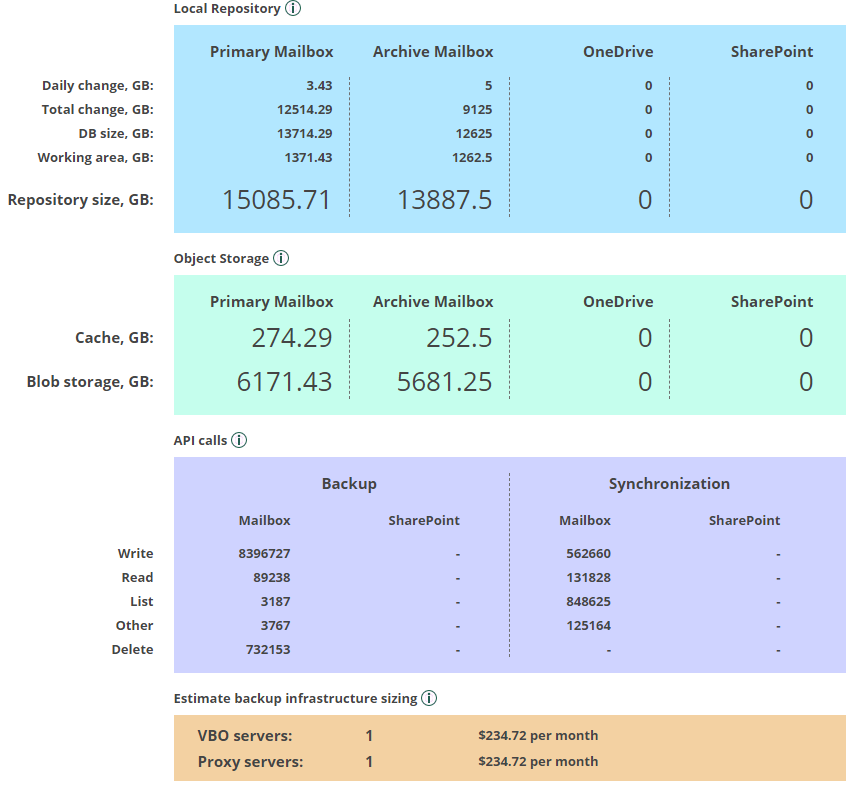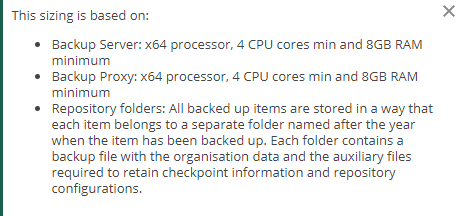The new official capacity calculator for O365 is now live at https://calculator.veeam.com/vbo/
You can either connect it to your real account and retrieve needed data or manually input data:

If you love the full details you can click the “Show details” button:

This will definitely make it a lot easier to estimate capacity use, but also size VBO servers and proxies, just click on the little “i” icon next to infrastructure sizing for even more information like CPU/memory:














